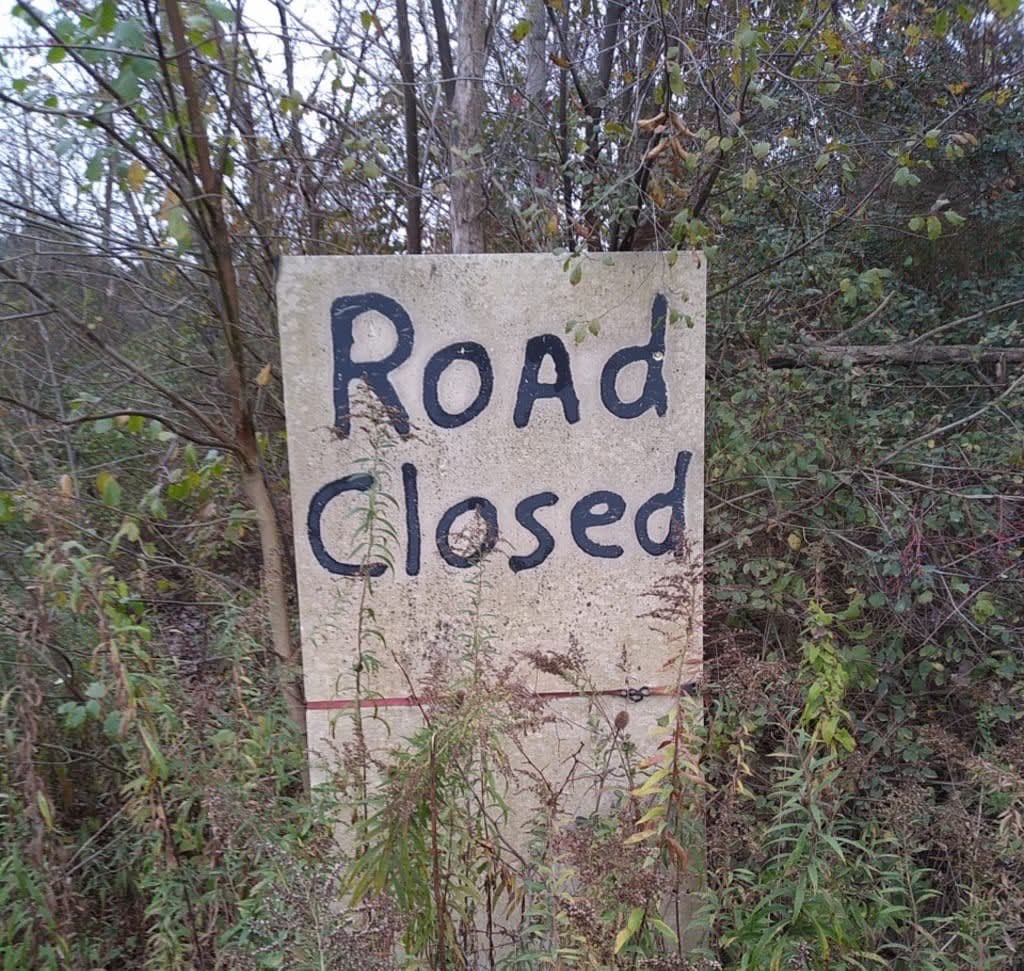The Quarry
Some stories you tell, and some you keep close.

Some stories you tell, and some you keep close. Maybe you tell them when you feel safe.
Maybe you never feel safe.
The quarry was off-limits. That just made sense. The pits were bottomless pools of black water that could swallow you without a trace. But where else were we supposed to go? We lived in the middle of nowhere. And it was the 1980s—no cell phones, no internet, no video games. All we had was each other.
“Where’s Mike and Diane?” I asked. I looked around and rubbed my bare arms, trying to smooth the goose flesh. I wasn’t about to complain about being cold. I don’t know why the older kids brought me along, but I didn’t want to jinx it.
Mary Lou and Teresa looked at each other. They were both 17. Basically adults.
“They’re in there,” Teresa said, looking over at the dark, abandoned crane hulking behind us. “They’re busy.”
I think I was 10 years old that summer, but even a 10-year-old knows what “busy” means.
I blushed and wandered over to the edge of the water. I knew once I got in I’d feel warmer. But that first shock of cold would be painful, and I took my time.
None of the others had gotten wet yet. The sky was overcast, with big, slow-moving banks of cloud. Light didn’t even glint off the water, although it undulated slightly like a living thing. Like it was breathing. I looked at the quarry lake and I thought of dinosaurs and creatures buried far, far underground.
It was only June, not great weather for swimming. Everyone was smoking but me. I’d try it to look cool, and then throw the cigarette away when no one was looking. If one of the others caught me doing it, they’d complain, “Hey, those cost money!”
Everyone, including me, had long hair and wore faded concert T-shirts and cut-off jeans. Standard attire for swimming in a giant murky puddle.
Mike was basically our leader since he was the oldest by a couple of years. He had thick, dark hair and a mustache. Diane was sunny and blonde. They’d been dating forever and everyone expected them to get married, even though Diane’s family didn’t approve of Mike (or his family) and they had to meet in secret at places like the quarry.
I looked down into the water. Bluegill darted back and forth in the shallows. My parents came here sometimes to fish and I made disgusted noises whenever my mom cleaned their catch in the kitchen sink, iridescent scales freckling her arms.
The sand squished between my toes as I edged into the water. I tried to avoid the swaying, slimy grass at the edge and concentrated on going out just far enough so I could dog paddle, but not so far that I couldn’t touch the bottom. I wasn’t a strong swimmer even after years of lessons, but I could stay afloat, and I wasn’t too afraid of drowning in the still water.
The quarry lay at the end of a dirt access road that wound downward from the blacktopped county road where we all lived. The area was pocked with old digs like this, gravel pits that had been plundered and abandoned.
Sometimes the mining companies would buy a home out from under a family and relocate them, house and all, a few miles away so they could scrape out a few more tons of rock. The roads where I grew up were subject to being moved without warning.
As a result, I never know where I am in my dreams, whether the landscape really looked like I remember it. Whether things I remember happening actually happened. I have big chunks missing from my memories, like somebody went through with a black pen and redacted secret information. The mind does what it needs to do in order to survive.
The lake where we swam was cupped by sheer dirt walls that sloped away to woods on either side where the mining company had given up. I was up to my thighs in the cold water when I saw them.
Looking back, trying desperately to remember, I don’t know if I actually saw the hooded figures emerge from the woods or if I sensed them first, the way you can smell smoke without seeing a fire.
Mike and Diane emerged from the rusty crane tugging at their clothes. Mary Lou and Teresa moved closer together as the figures split up and circled us at a distance. I looked over at the access road. Two tall forms stood motionless, blocking our exit.
When they were 20 or 30 feet away, the figures stopped. There were six of them. They held rods in their hands that buzzed, and they wore identical gray robes with cowled hoods that hid their faces. If they had faces. When a breeze moved the cloth, I couldn’t see any features. Just a tight, slick skin without eyes or a mouth.
My heart was hammering in my chest. My parents let me watch every scary movie that came on TV and this was like the worst of them come to terrifying life. Faceless creatures that appeared out of nowhere to kill whoever they found. We could scream, but who would hear us? The nearest house was a mile away. We could fight, but they had the buzzing rods and we had nothing. I looked around for a rock, something to throw or wrap my fist around. But there was only water and slimy grass and sand.
An odor reached me, cutting through the smell of lake and mud and rusted metal. A sugary musk that I almost recognized, but then lost when the breeze died.
Mike stepped forward. “We’re allowed to be here,” he lied.
One of the figures, shorter than the others, suddenly lunged forward with the buzzing rod outstretched and poked Mike in the chest. Mike yelped and jumped back. The figure lunged again, jabbing Mike over and over, herding him away from the rest of us.
I don’t know what I was thinking—nothing, probably. My mind was blank but my body was ready to explode from fear. I spun around and dived into the water, wanting only to get away from the weird gray figures that were clearly going to kill us.
I heard one of the figures shout incoherently before my head was underwater and I was swimming sloppily out towards the center of the lake.
I don’t know how long I swam. The lake wasn’t big, but like I said, I wasn’t the world’s greatest swimmer. It felt like I beat at the water for hours before I hit stinking mud on the other side and dragged myself out, tearing at roots and weeds with my hands and stumbling into the woods.
My chest and eyes were on fire. I huddled behind a tree, dripping and shaking, and looked back across the water.
Mike was standing up against one of the sandy walls that backed the lake. The shorter robed figure had something in its hands—not the buzzing rod. It was hard to see in the cloudy light, everything blending together in shadow shades, but it looked like the figure was holding a bow. Not like an Indian in an old Western, but flat out in front with arms extended.
It was a crossbow. And as I watched, the figure shot Mike in the chest. For a moment, he slapped at the smooth bolt and tried to tug it free, but his hands weren’t working in unison and within seconds he slumped down onto his side and didn’t move.
Diane, Mary Lou, and Teresa were crying and screaming, “Why? Why?” over and over. The figures stood impassively. They seemed to be waiting to make sure that Mike was dead.
Finally, two of them stepped forward and picked up Mike’s body. All six of the figures merged slowly back into the woods far off to my right, towards a railroad siding hidden by the trees. They carried Mike like I’d seen men carry a dead deer.
I sat shivering in the woods for a long time. When I realized night would catch me if I didn’t move, I followed the edge of the lake around to the access road and climbed up and out. Diane and the others had left me behind, but I didn’t care. I didn’t want to see them. I never wanted to see any of them ever again. That’s what I got for hanging out with older kids and thinking I was cool.
I couldn’t even process what I had seen, let alone tell anyone about it. The other girls didn’t tell anyone either. Who would believe us, our crazy story that aliens or ghosts or pagans found us in the quarry and killed Diane’s boyfriend?
No one looked very hard for Mike. He was just another young man from a poor and violent family. The police wrote him off as a runaway.
Our families didn’t ask a lot of questions about our lives back then. It’s not like today when parents know what their kids are doing every waking moment. We lived in a separate world, and our pain and troubles were our own.
Eventually, as an adult, I figured out that the nightmare figures were just people, men, wearing women’s pantyhose over their heads like bank robbers in the movies. That’s why their faces had looked sleek and featureless like defaced mannequins. The buzzing rods were cattle prods.
And the short, heavy form that had shot Mike through the heart with a crossbow was Diane’s father. It was his cologne I smelled snaking over the water like poison, the same cologne he wore to church every Sunday. He had never liked Mike or his family. They drank and beat each other up and argued in public and got arrested on a regular basis. They didn’t go to church with Diane’s family or the other respectable families in the neighborhood.
Even knowing what had happened, I didn’t go to the police. I didn’t have any more proof now than I did when I was 10. What was I supposed to say? “Hey, remember Mike, that guy who disappeared in the ‘80s? The neighborhood dads all got together and shot him like an animal and then dumped his body somewhere out in the woods.”
For all I know, the police already knew about it. Only stupid people go to the police.
I ran into Mary Lou a few years ago. She looked old. Her husband was disabled and walked with a cane, and they scraped by on welfare and food stamps. She didn’t talk to Diane or Teresa anymore. Something about drugs and mental illness. I knew all about drugs and mental illness.
I’ve always wondered if Diane knew it was her dad who shot her boyfriend that day in cold blood. Some questions never go to sleep. They never let you rest.
I asked Mary Lou if she had anything she could sell.
“You party?” she asked, surprised.
I nodded, and she understood. She left the room and came back with a baggie. I gave her $50 and left, relieved to have something that took the edge off, that kept the dreams at bay. That let me forget for a few hours about what happened that summer, long ago, at the quarry.
About the Creator
Bev Potter
Writer, know-it-all.






Comments
There are no comments for this story
Be the first to respond and start the conversation.